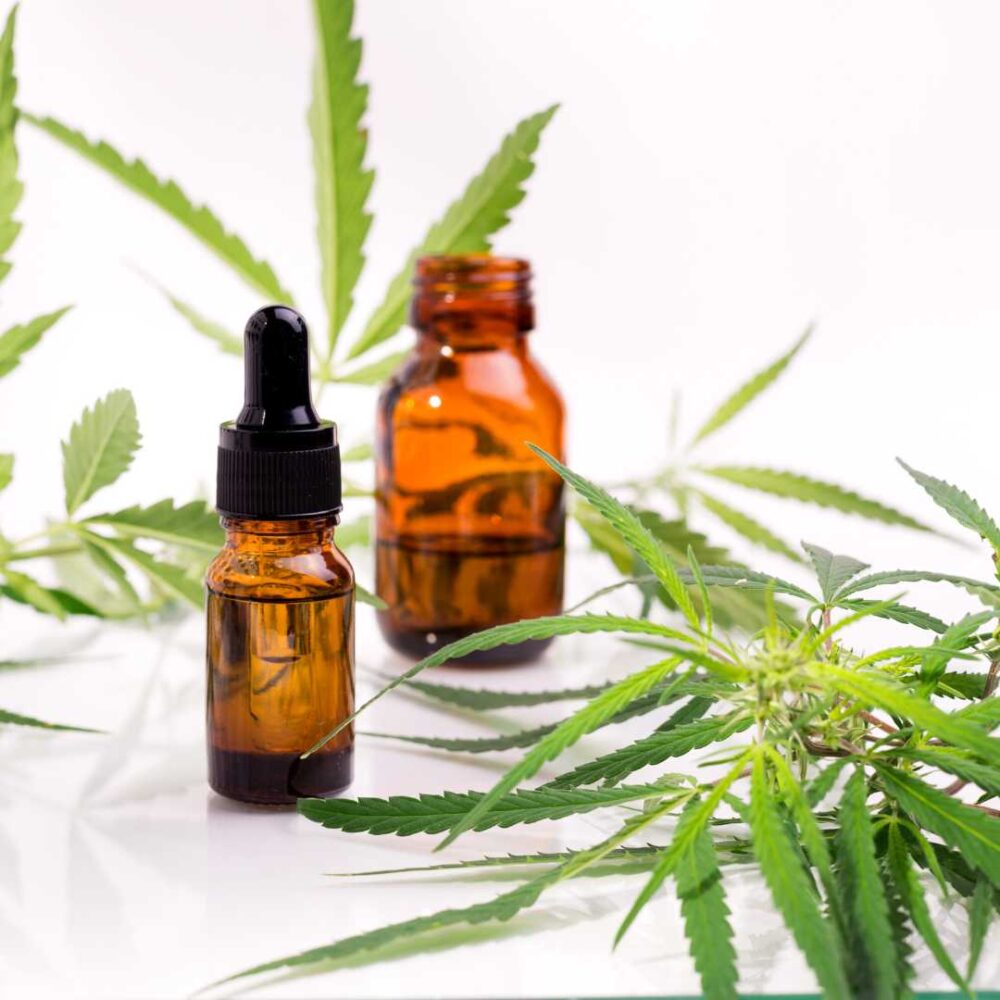
Relaxed, calm, finding relief in the morning and night. The original hemp cannabinoid that revolutionizing how hemp is used.
Cannabidiolic acid (CBDA), a still overlooked bioactive compound, is steadily becoming more and more popular as the days go by. This is mainly due to its health benefits supported by numerous CBDA studies, and users who have not benefited from CBD.
In this article, we will explore how CBDA interacts with the human body. We'll also dig deep on what kind of feelings it elicits. From pain relief to reducing anxiety, let's learn how CBDA makes you feel.
Article Highlights
- With superior absorption and unique serotonin properties, CBDA provides the calming relief we are looking for.
- CBDA has been widely overlooked but although lesser known than CBD, the benefits of CBDA are also promising.
- CBDA is nonpsychoactive cannabinoid, meaning it won't make you feel “high”
- CBDA may possess a unique set of properties that are distinct from CBD, and research suggests that it may be more effective for certain health conditions.
Introduction to CBDA and Its Differences From CBD
If you've heard about the different health benefits of Cannabidiolic acid (CBDA), one of the major cannabinoid precursor compounds, but you haven't yet figured out what it is and how it works, you're not alone. While Cannabidiol, or CBD, is the most widely recognized chemical compound present in cannabis plants, its precursor compound, CBDA, has been widely overlooked. Although lesser known than CBD, the benefits of CBDA are also promising.
Since the molecular structure of CBDA has a carboxylic group, it makes a huge difference from that of CBD. This difference may possibly impact how these two chemical compounds interact with the human body, the endocannabinoid system, and drug metabolism.
One key difference between CBD and CBDA is that the cannabidiolic acid is believed to have a more potent effect on the body than CBD. CBDA is the unheated raw form of CBD. CBDA can be converted to CBD through decarboxylation. On the other hand, CBDA may possess a unique set of properties that are distinct from CBD, and research suggests that it may be more effective for certain health conditions.
The Science Behind CBDA and Its Impact on the Body
CBDA has shown therapeutic potential for various health problems. These include anxiety, inflammation, and nausea. Research has shown that CBDA interacts with the body's endocannabinoid system. This system helps regulate pain, mood, appetite, sleep, and more.
CBDA specifically interacts with the CB1 and CB2 receptors present in the brain and throughout the body. This interaction with the cannabinoid receptors makes CBDA a powerful chemical compound for supporting physiologic processes.
CBDA vs CBD oil - superior absorption
CBDA oil is now recognized to have superior absorption, with over 450-1000% better absorption than CBD.
Enhanced absorption is critical to all medicinal compounds, since you cant get the therapeutic effects without the compound getting into the bloodstream at an appropriate amount.
Feel the feeling of relief: Health Benefits of CBDA
CBDA is nonpsychoactive cannabinoid, meaning it won't make you feel “high”. CBDA benefits on human health are numerous, this include the following:
Anti-inflammatory Properties: CBDA has been found to have anti-inflammatory properties and may help alleviate pain and swelling in conditions such as arthritis. One study showed that it may potentially be more powerful than other nonsteroidal anti inflammatory drugs. CBDA is one of many other cannabinoids that activate the ECS through interaction with its receptors. Other acidic cannabinoids including Cannabigerolic acid and Tetrahydrocannabinolic acid have been found to also interact with the ECS receptors and may provide therapeutic benefits.
Anti-nausea: As CBDA being among the major cannabinoid precursor compounds found in the Cannabis sativa plant, it is studied in several preliminary research. Pre clinical trials particularly found that it can treat nausea which is especially helpful to cancer patients in alleviating side effects of chemotherapy.
Anticonvulsant: One research team found that CBDA has anticonvulsant properties, which may make it a potential treatment for seizures and drug resistant epilepsy. But research is still needed to understand its benefits on seizures and epilepsy fully.
Antidepressant: The chemical compound CBDA, a major cannabinoid precursor found in cannabis plants, has been reported to have antidepressant properties based on human trials. This was found through its activation of the 5HT1A serotonin receptor. This has raised interest in exploring the therapeutic effects of CBDA on the central nervous system, particularly for alleviating symptoms of depression and anxiety.
Pain relief: CBDA has been shown to have pain-relieving properties. This characteristic makes CBDA an attractive target for researchers looking to relieve pain associated with conditions such as headaches, menstrual cramps, and neuropathic pain caused by chronic inflammation.
Cancer treatment: CBDA has demonstrated potent anti-tumor effects. It was shown to inhibit growth of breast cancer cells. This includes suppressing breast cancer metastasis and slowing the growth of harmful cells, as seen in vitro and in vivo studies. CBDA may also enhance the potency of drugs used to treat cancer and help stimulate the immune system.
Neuroprotective: CBDA, a cannabinoid found in raw cannabis, has been shown through numerous studies to have neuroprotective properties. This means it may protect the brain and nervous system from damage. With such promising effects, CBDA is still an overlooked bioactive compound and requires further investigation by research teams.
Sleep aid: People who suffer from insomnia experience difficulty falling asleep or staying asleep at night. This may lead to impaired daytime wakefulness, reduced ability to concentrate, and a negative impact on mood. This disorder can be further exacerbated by anxiety about getting inadequate sleep. CBDA appears to have sedative properties that can help improve sleep.
It is important to note that while these findings are promising, further research is needed to understand the effects of CBDA fully. The lack of regulation in the CBD industry also means that not all CBDA products are created equal. It is crucial to purchase high-quality, lab-tested products to ensure safety and efficacy.
How Can CBDA Be Consumed?
CBDA can be consumed in a number of ways, including:
Sublingually: One of the most effective ways to consume CBDA is sublingually. This works by placing raw CBDA oil under your tongue and allowing it to be absorbed into the bloodstream. This method bypasses digestion and becomes rapidly absorbed directly into the bloodstream.
Topically: CBDA can be applied topically for pain and inflammation. The topical application of CBDA allows it to be absorbed directly into the affected area, making it an effective way to treat local inflammation.
Ingestion: CBDA can also be ingested, although this method is considered one of the least effective ways to consume CBD, for CBDA it is still highly effective because of its superior absorption. Typically, CBD passes through the digestive system before being absorbed into the bloodstream, leading to lower amounts, but CBDA is able to achieve high levels in the blood.
Inhalation: CBDA is often smoked via hemp flower, or can be put in a vape. However, when exposed to heat in these forms, it will convert to CBD. So in these cases, you are not inhaling CBDA but CBD.
Food and drinks: CBDA can be consumed gradually by adding it to food and drinks, such as smoothies and salad dressings. This form of consumption provides a sustained release of CBDA into the bloodstream. It is also a good choice for those seeking prolonged relief.
Supplements: CBDA can also be taken in the form of capsules or tablets. These are available in various doses and are ideal for those who prefer a more controlled and consistent dose of CBDA. This method of consumption also provides a convenient and discreet way to take advantage of the potential benefits of CBDA.
Safety and Legality of CBDA Use
CBDA is generally considered safe for consumption, with few manageable side effects. However, it is important to talk to a healthcare professional before using CBDA. This is especially true if you're taking any prescription medications as there may be potential drug interactions that need to be considered.In terms of legality, CBDA oil is considered a legal substance in the United States as long as it only has a THC concentration of less than 0.3%. THC is one of the main psychoactive cannabinoids found in marijuana that causes a "high." Still, it is important to check the laws in your specific state before purchasing or consuming CBDA products.
In other countries, the legality of CBDA may vary and it is important to research the laws in your specific location. It is also important to ensure that any CBDA products you purchase are of high quality from a reputable source.
It is also worth noting that the long-term effects of CBDA use still need to be fully understood. More research is needed to understand its potential benefits and risks fully. As with any supplement or alternative treatment, it is important to consult a healthcare professional before use.
Conclusion and Future Outlook of CBDA Research
CBDA is among the promising plant enzymes present in a cannabis plant, and its potential health benefits are just beginning to be understood. As more studies are conducted, we will gain a deeper understanding of the impact of CBDA on the body and its potential uses in medicine.While CBDA has received less attention than CBD, its unique properties and potential benefits make it an area of research worth exploring. As more people become interested in natural and holistic approaches to wellness, interest in CBDA will likely continue to grow.
It is important to remember that not all CBDA products are created equal. It is crucial only to purchase high-quality, third party lab-tested products to ensure safety and efficacy. In addition, CBDA should not be used as a substitute for traditional medical treatment or professional medical advice.



